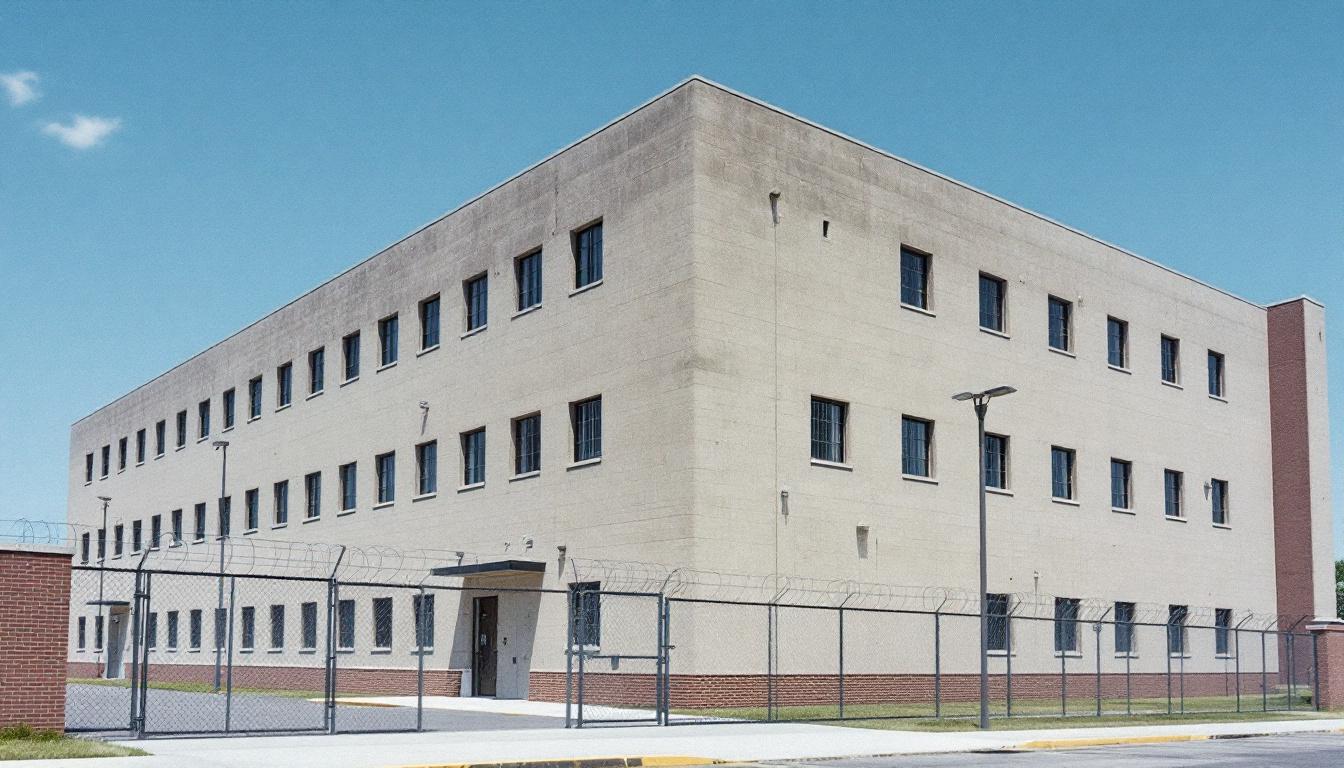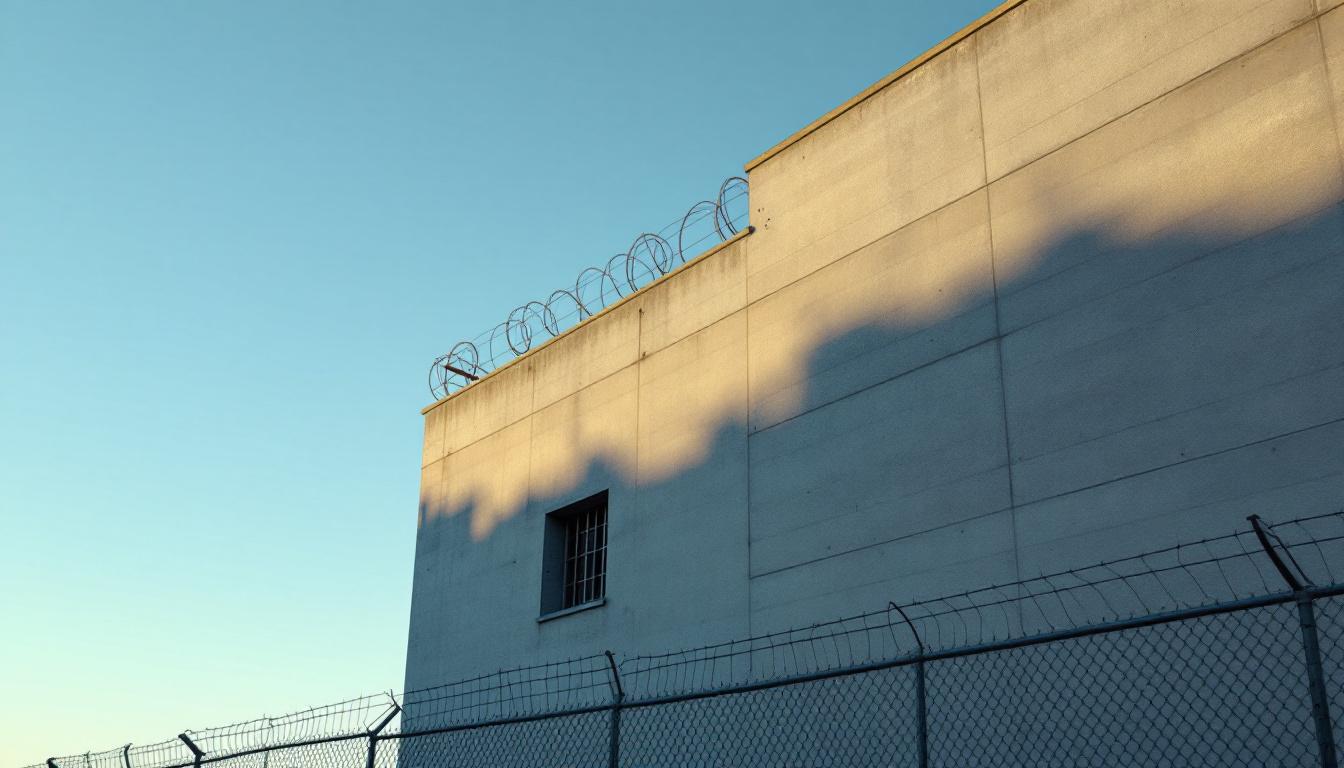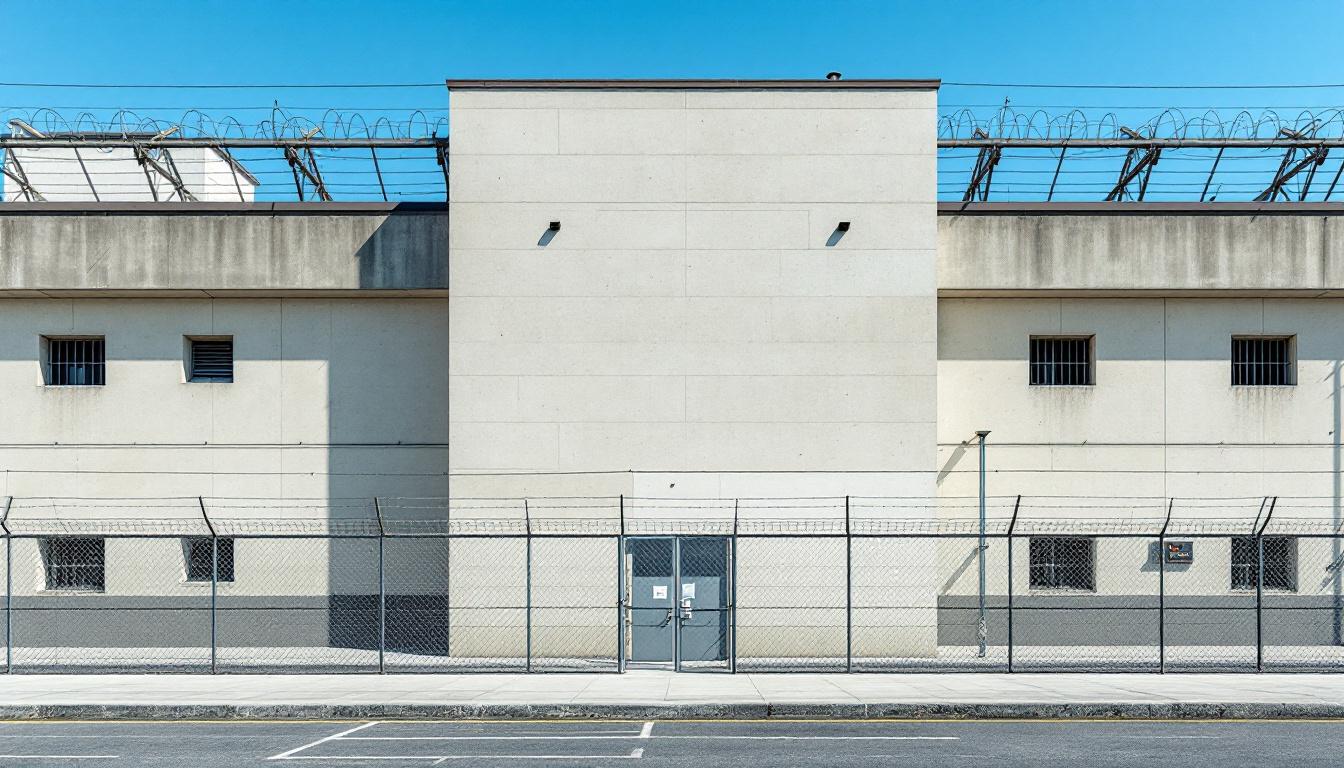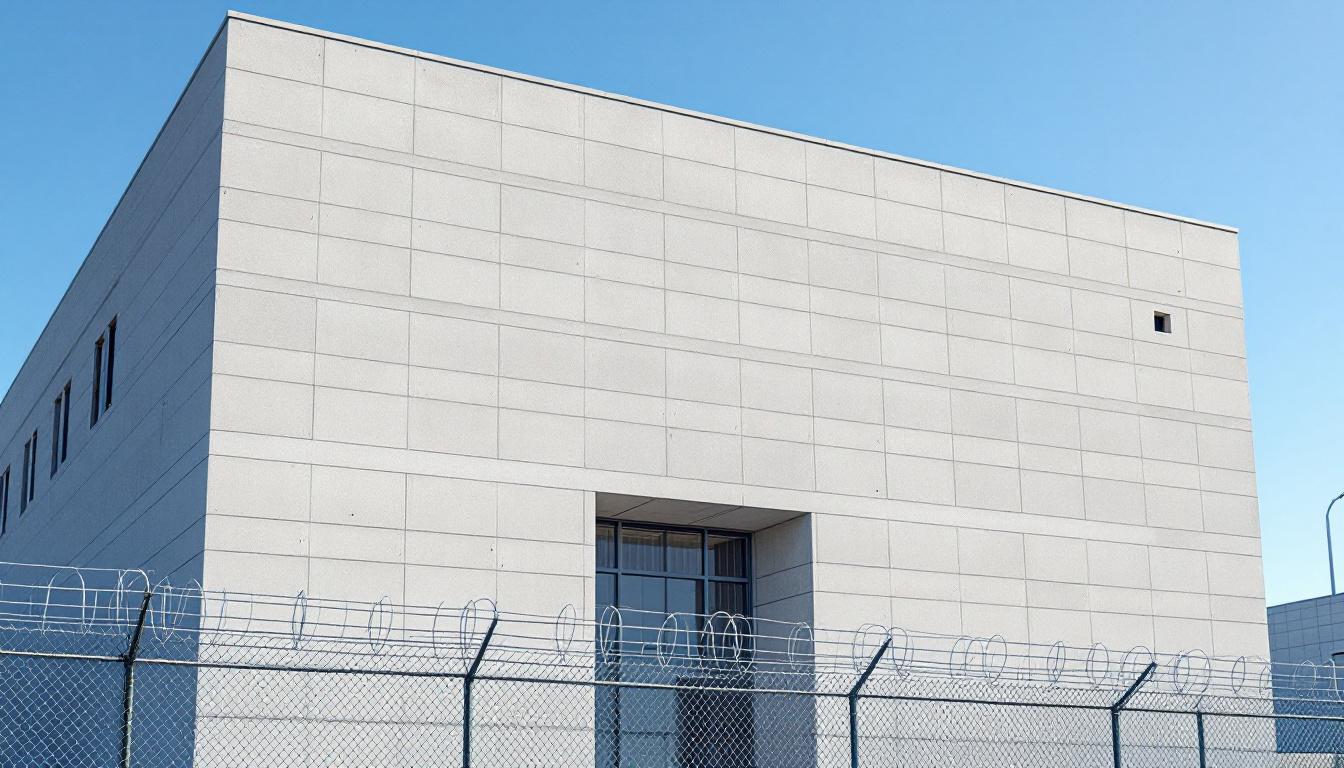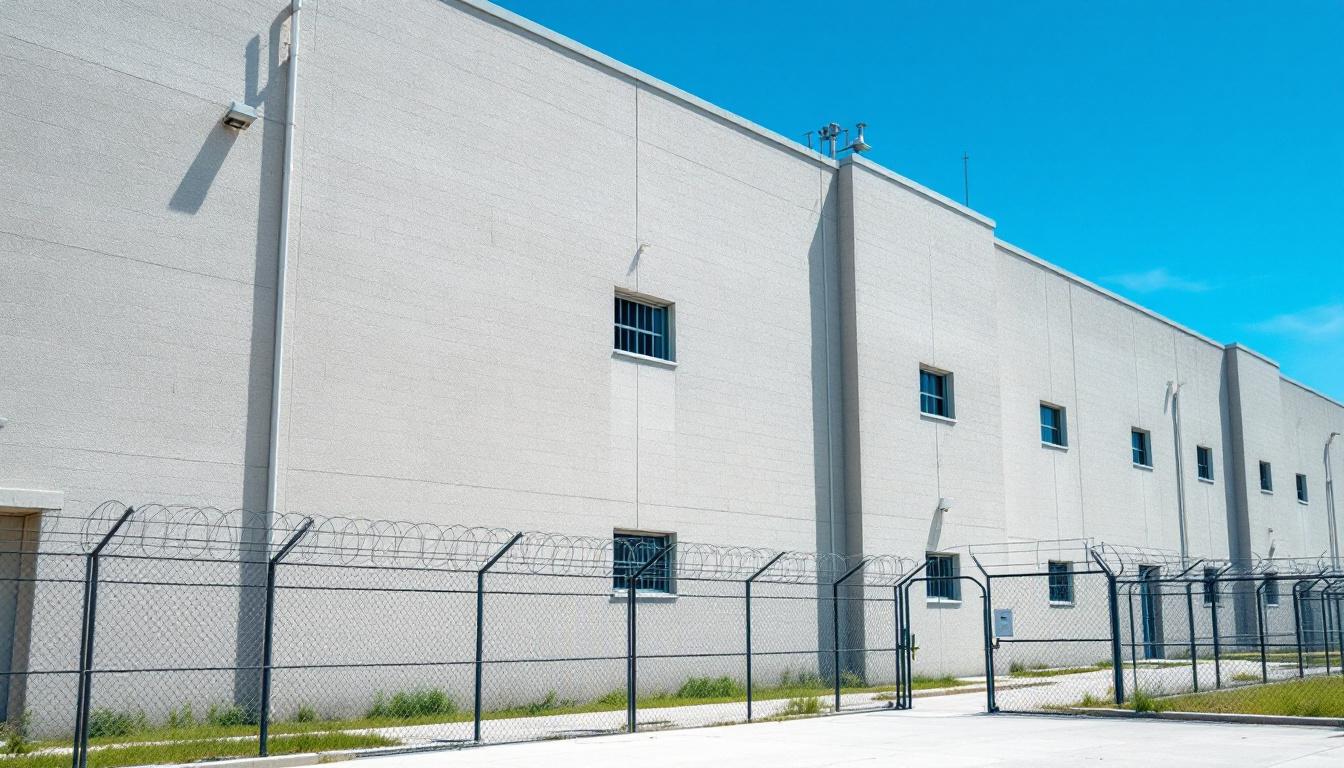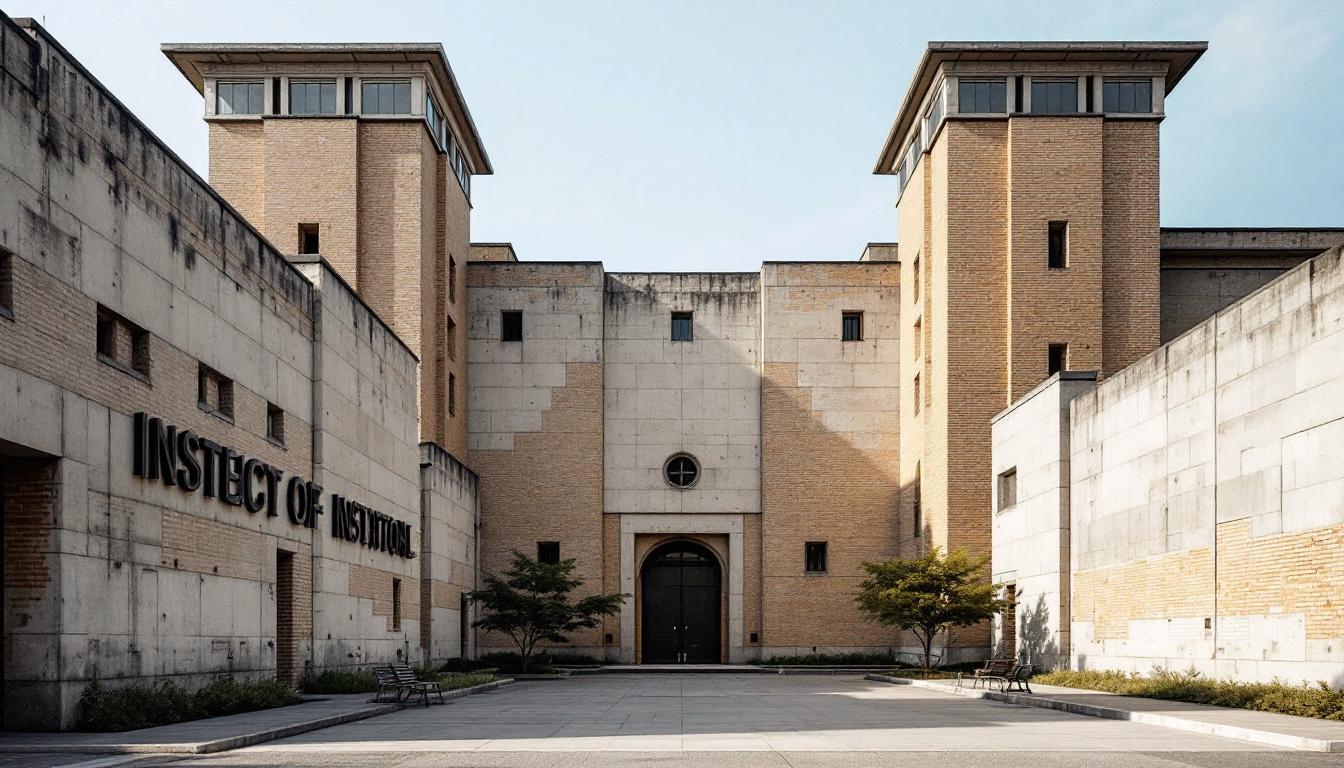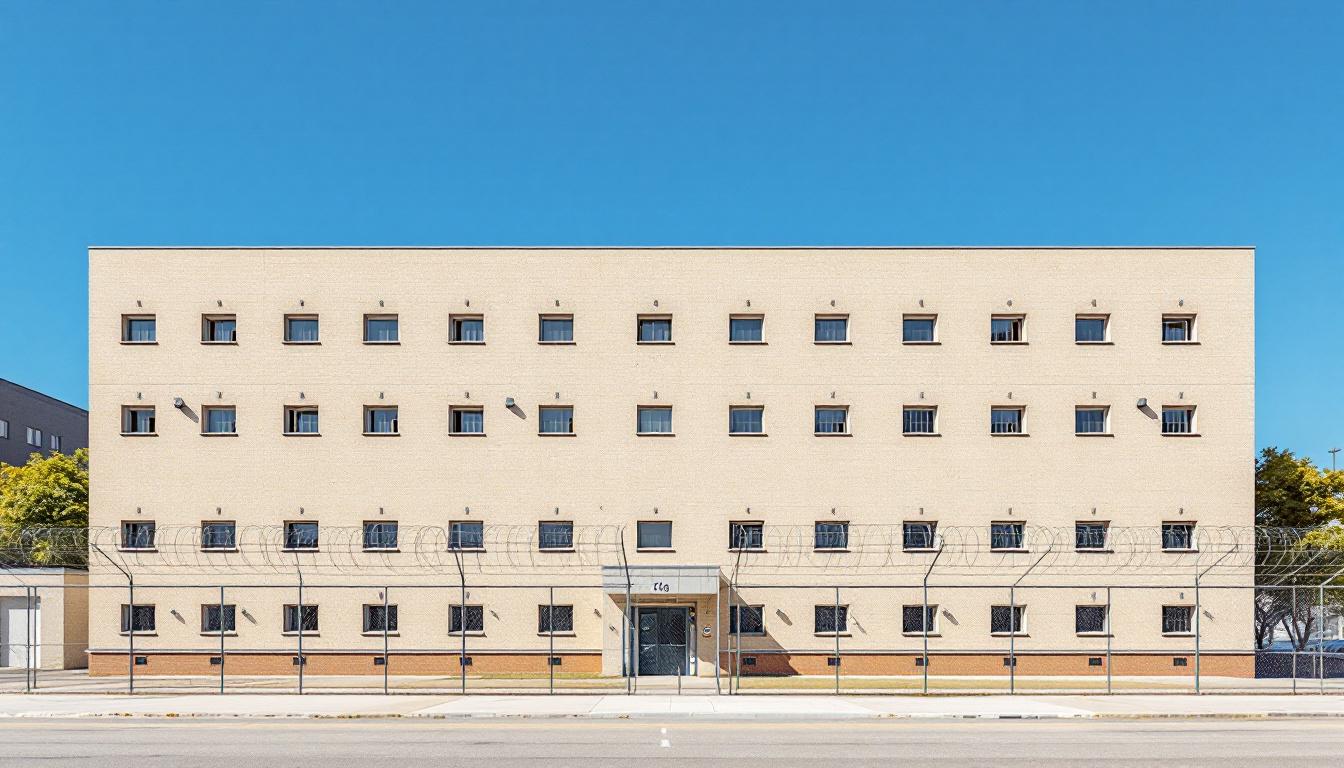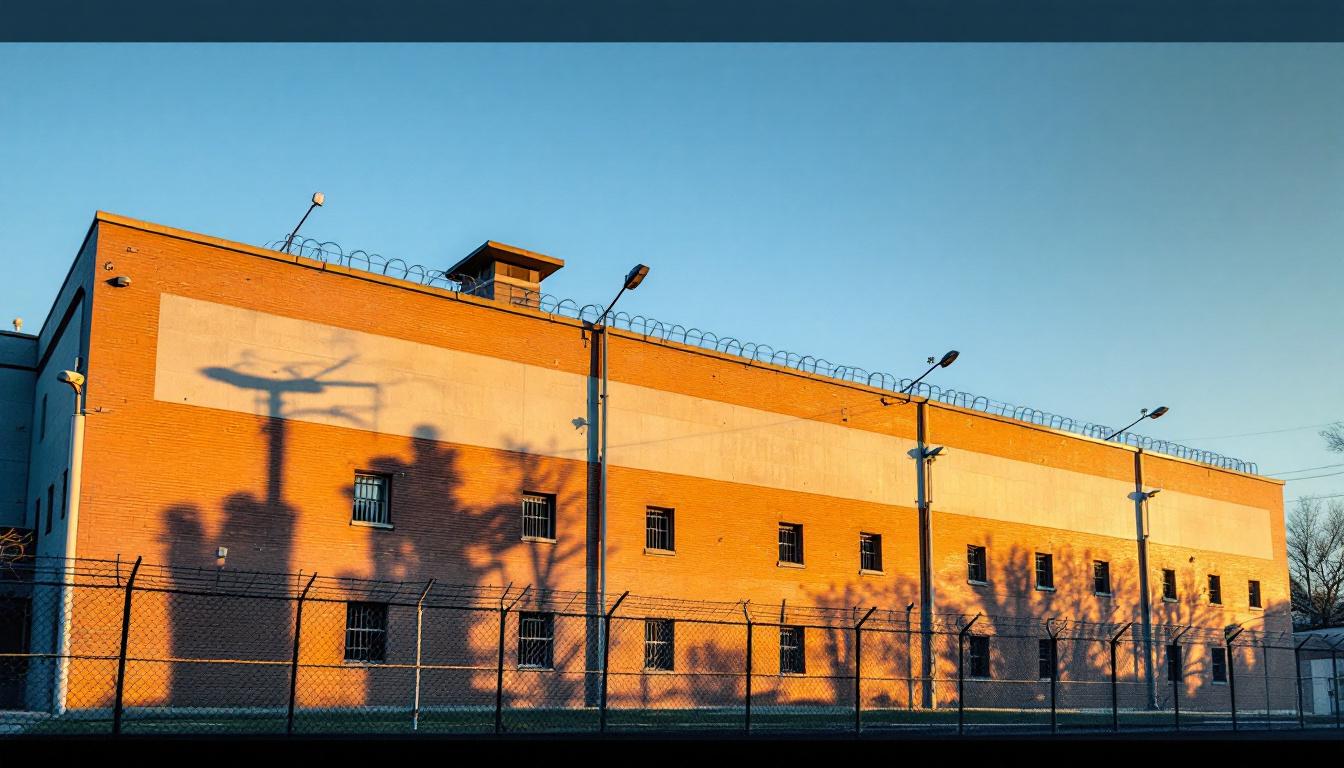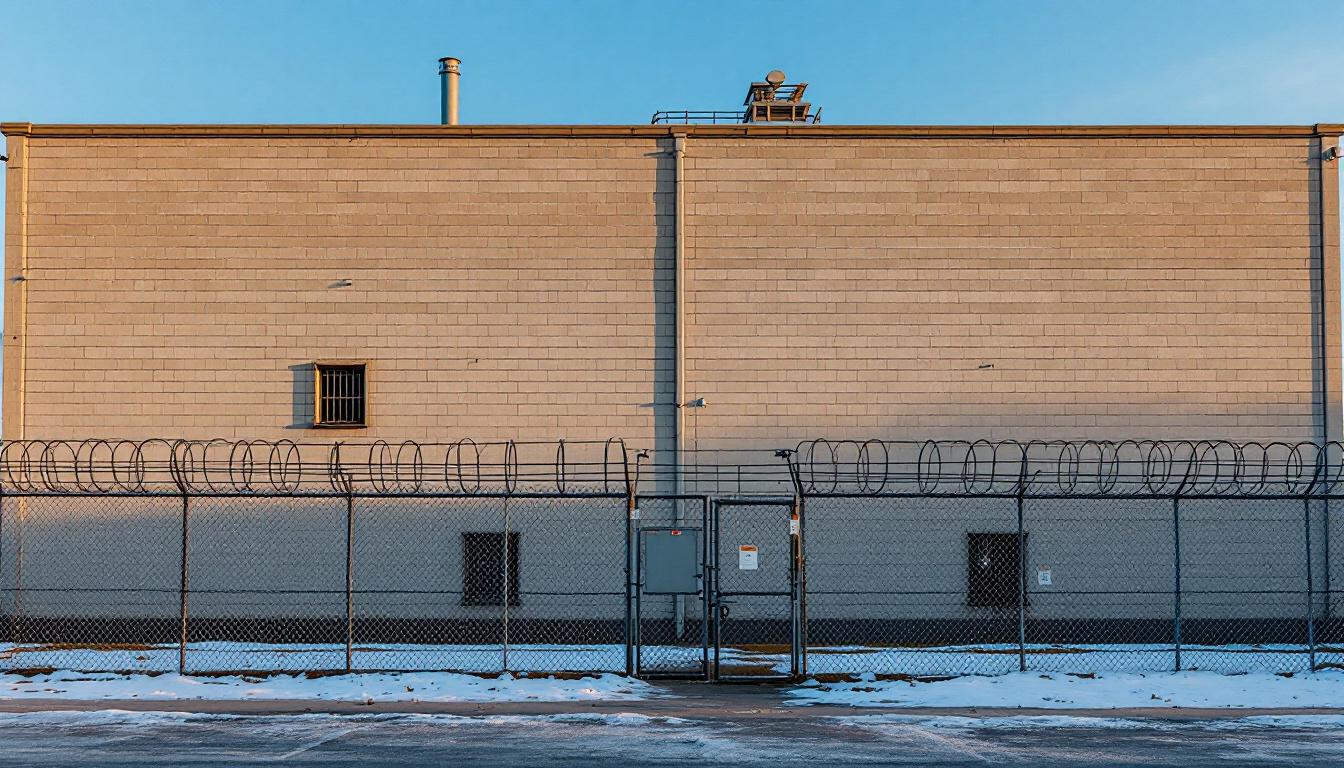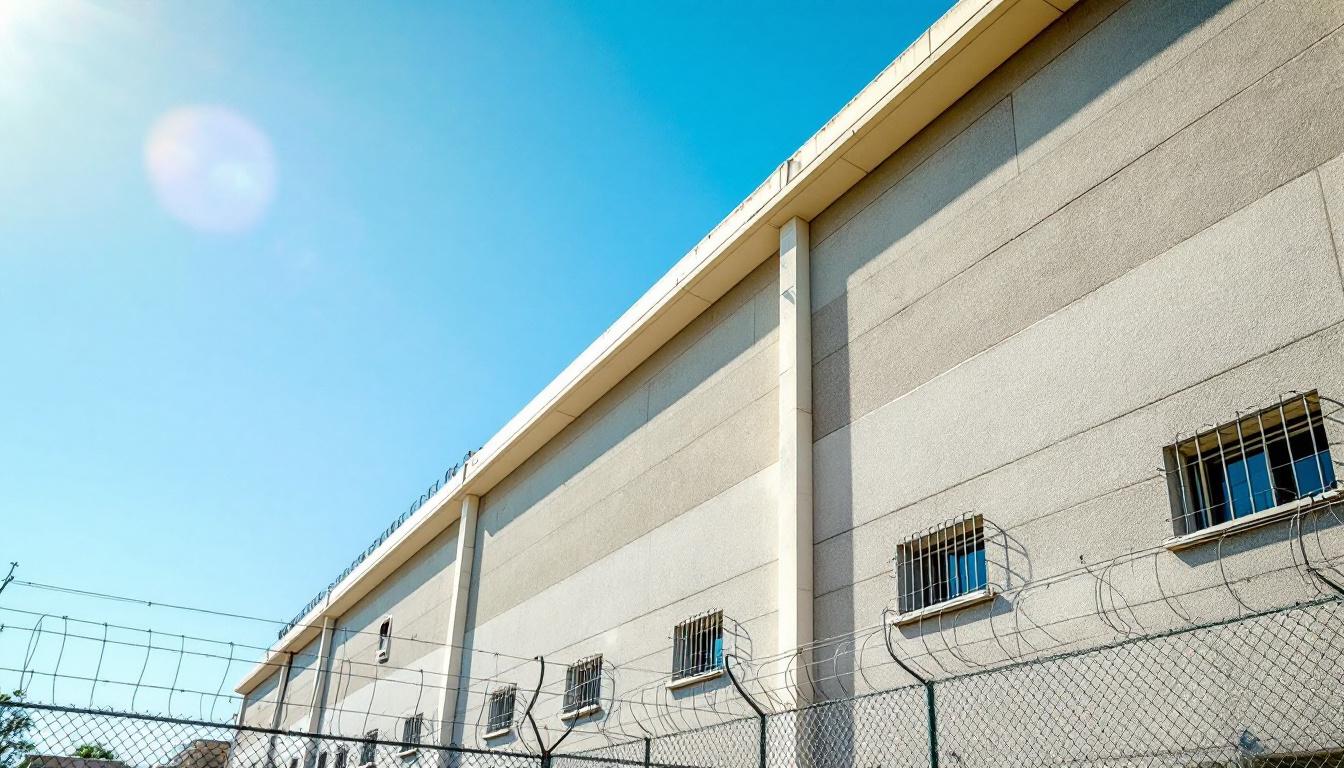
Quick Navigation
How to contact an inmate at Lafayette County Detention Center
This comprehensive guide will walk you through how to connect with an inmate at Lafayette County Detention Center. Follow the steps below to find an inmate and send letters and photos:
- Search for the inmate using our search tool below
- Create your account or log in to Penmate
- Write your message (up to 6,000 characters)
- Send instantly - inmates receive printed copies daily
Find an Inmate
Search for an inmate to start communicating today
Tip: You can search by first name, last name, or inmate ID number
To contact a person at Lafayette County Detention Center start by searching for the person on the official facility website. Perform a search by following these steps:
- Step 1: Enter their first name and last name into the search form and click "Search"
- Step 2: Locate their inmate record
- Step 3: Write down their Inmate ID and any housing information provided
Important! Be sure to enter the person's full name. Nicknames should not be used.
How to Send Messages to Inmates

You can use your phone or computer to send emails, letters, and photos to an inmate. Messages are sent electronically to inmate tablets or kiosks at the facility. If you would like to send a message, start by searching for an inmate at Lafayette County Detention Center.
Sending Photos and Postcards

A great way to send love and support to a loved one at Lafayette County Detention Center is to send photos and postcards. It only takes a few minutes to send photos from your phone and it makes a huge difference. You can also mail postcards with words of support and inspiration, or design your own postcard for special moments like birthdays and holidays.
Important! Be sure not to send any explicit photos or they may not be approved by the facility. You can also use a photo printing app like Penmate to make sure your photos are printed at the correct size (4x6 or 3x5) and are mailed according to the rules and regulations of Lafayette County Detention Center.
Frequently asked questions about Lafayette County Detention Center
-
How long does it take to deliver a message?
If you're sending an email message your letter is usually delivered within 24-48 hours. For messages sent via mail you should expect delivery within 3-7 days. All messages will need be approved by Lafayette County Detention Center.
-
How much does it cost to send a message to Lafayette County Detention Center?
You can send a message free using your phone or mail a message via USPS for the price of a $0.60 stamp and envelope. You can also purchase credits or e-stamps from services starting at $1.99.
-
What services can I use to contact an inmate at Lafayette County Detention Center?
Penmate
You can use Penmate to send letters and photos to an inmate from your phone. It's an easy way to stay in touch during your loved one's incarceration. Use the inmate locator to find an inmate's location and contact information, then you can send messages within a few minutes.
Securus messaging
Securus may be another option for communicating with an inmate at Lafayette County Detention Center. You can create a friends and family account and purchase credits to send messages. All messages will be reviewed and must be approved by the facility.
JPay
Some county jails and state prisons may support sending messages with JPay. You must register an account with the system, find your loved one, and purchase stamps to send messages. For some locations you can also attach photos.
Smart Jail Mail
You may also check if Smart Jail Mail is available at Lafayette County Detention Center. Smart Jail Mail is operated by Smart Communications and has contracted with some state and county jails. After purchasing credits, your messages and photos are sent to the facility, printed out, and then handed out to your loved one.
-
What is the mailing address of Lafayette County Detention Center?
Mailing address:
Lafayette County Detention Center
711 E Jackson Ave
Oxford, MS 38655
Phone: (662) 234-6421 -
What are the visiting hours at Lafayette County Detention Center?
Visiting hours at Lafayette County Detention Center vary by housing unit and security level. Generally, visits are scheduled on weekends and holidays, with some facilities offering weekday visits. Contact the facility directly at (662) 234-6421 or check their website for the current visiting schedule. Visits typically last 30-60 minutes and must be scheduled in advance.
-
What items are prohibited when sending mail to Lafayette County Detention Center?
Prohibited items typically include: cash, personal checks, stamps, stickers, glitter, glue, tape, staples, paperclips, polaroid photos, musical or blank greeting cards, hardcover books, magazines with staples, and any items containing metal or electronics. Only send letters on plain white paper with blue or black ink. Photos must be printed on regular photo paper (no Polaroids). Always check with Lafayette County Detention Center for their specific mail policies.
-
How do I send money to an inmate at Lafayette County Detention Center?
You can send money to an inmate at Lafayette County Detention Center through several methods: 1) Online using JPay, Access Corrections, or the facility's approved vendor, 2) Money orders mailed directly to the facility with the inmate's name and ID number, 3) Kiosks located in the facility lobby, or 4) Over the phone using a credit or debit card. Fees vary by method, typically ranging from $2.95 to $11.95 per transaction.
-
Can I schedule a video visit with an inmate at Lafayette County Detention Center?
Many facilities now offer video visitation as an alternative to in-person visits. At Lafayette County Detention Center, video visits may be available through services like Penmate, Securus Video Connect, GTL, or ICSolutions. Video visits typically cost $10-20 for 20-30 minutes and must be scheduled in advance. You'll need a computer or smartphone with a camera and reliable internet connection. Contact the facility for their specific video visitation policies and approved vendors.
-
What identification do I need to visit an inmate at Lafayette County Detention Center?
All visitors must present valid government-issued photo identification such as a driver's license, state ID, passport, or military ID. Minors must be accompanied by a parent or legal guardian who can provide the minor's birth certificate. Some facilities require visitors to be on the inmate's approved visitation list, which may require a background check. Contact Lafayette County Detention Center for specific ID requirements and visitor approval procedures.
-
How can I find out an inmate's release date?
To find an inmate's release date at Lafayette County Detention Center, you can: 1) Use the online inmate search tool if available, 2) Call the facility's records department, 3) Contact the inmate's case manager or counselor, or 4) Have the inmate provide this information during a call or visit. For privacy reasons, some facilities only release this information to immediate family members.
Facility Overview
Contact Information
Lafayette County Detention Center711 E Jackson Ave
Oxford, MS 38655
Phone: (662) 234-6421
Official Website

About Lafayette County Detention Center
Comprehensive support services and structured programming opportunities define the operational approach at Lafayette County Detention Center, MS, where individuals services encompass educational advancement, vocational skill development, and behavioral intervention programs designed to address underlying factors contributing to criminal behavior. Located in Oxford, this MS correctional facility typically maintains close coordination with local community organizations and state agencies to facilitate seamless transitions for individuals preparing to reenter society, often incorporating job readiness training, substance abuse counseling, and basic life skills education into daily routines.
The facility's operational philosophy centers on progressive rehabilitation principles that align with Mississippi's broader correctional reform initiatives, emphasizing personal accountability while providing structured environments for positive behavioral change. Staff members generally focus on implementing evidence-based practices that may include cognitive-behavioral programming, anger management courses, and educational opportunities ranging from basic literacy instruction to high school equivalency preparation. This detention center typically serves as a crucial component within the state's correctional network, processing individuals awaiting trial while simultaneously offering programming designed to interrupt cycles of recidivism through targeted interventions and community-based support connections that extend beyond release dates.
Programs & Services
Multiple pathways for personal development and skill-building create a foundation for positive change at Lafayette County Detention Center. The facility typically emphasizes a comprehensive approach that addresses various aspects of individual growth, from basic education to specialized therapeutic interventions. This multi-faceted programming structure recognizes that meaningful rehabilitation often requires addressing different areas of a person's life simultaneously.
Educational opportunities may include basic literacy programs and GED preparation services, allowing individuals to complete their high school equivalency while incarcerated. Distance learning options often provide access to higher education coursework for those ready to pursue advanced studies. Also available are vocational training opportunities, with welding programs typically offering hands-on skills that translate directly to employment opportunities upon release. These educational and vocational services are often designed to build both confidence and practical abilities.
Support services frequently encompass faith-based initiatives that provide spiritual guidance and community connection for interested participants. Therapeutic programming may include substance abuse treatment designed to address underlying addiction issues that often contribute to criminal behavior. Also offered are specialized treatment opportunities for sex offenders, providing targeted interventions for this population. These comprehensive support and therapeutic services typically work together to address the complex factors that may have contributed to an individual's incarceration while building tools for successful community reintegration.
Daily Life & Visitation
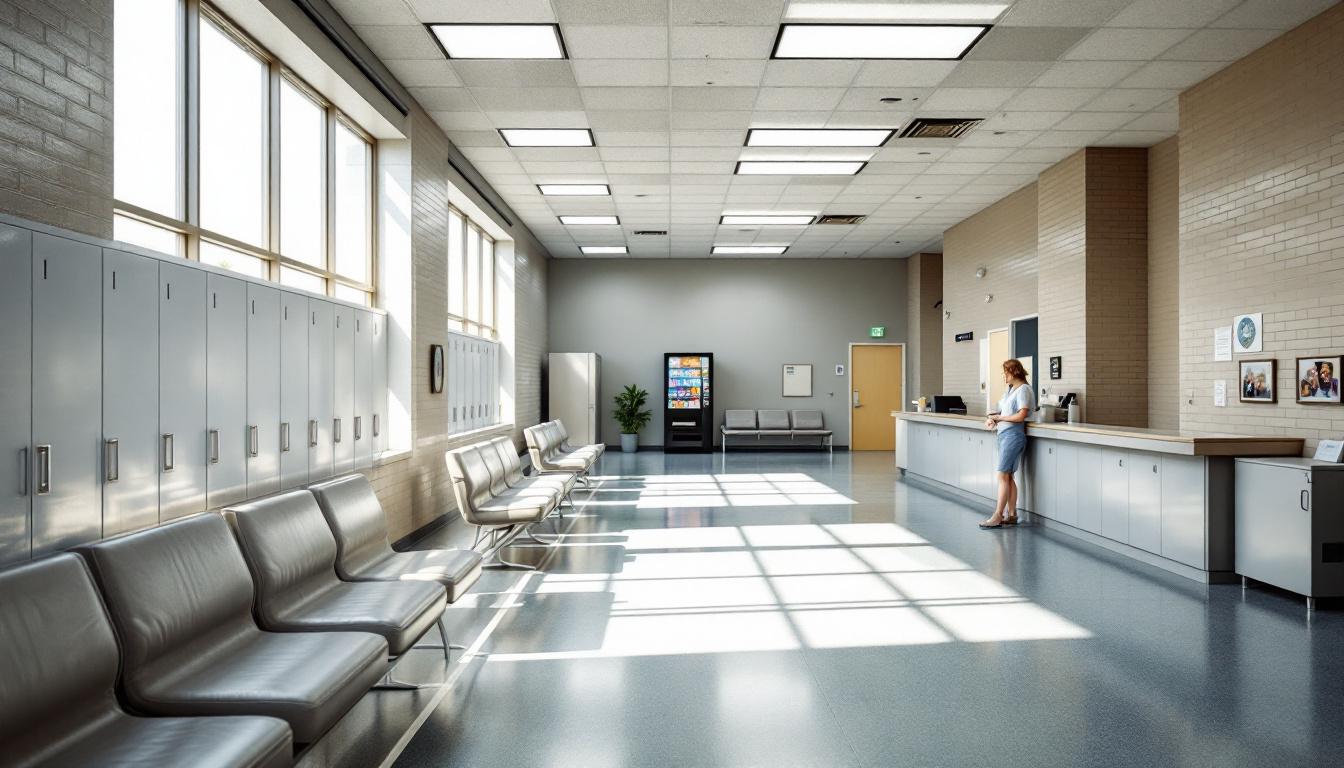
Wake-up calls echo through housing units before dawn, signaling the start of another structured day. The facility currently operates on a regimented schedule that continues to emphasize routine and accountability. Individuals typically begin with morning counts and personal hygiene time, followed by breakfast service in designated dining areas. Work assignments generally commence in the morning hours, with individuals participating in various facility operations including kitchen duties, maintenance tasks, and cleaning responsibilities. Structured programming schedules also offer educational opportunities and life skills classes throughout the day.
Housing accommodations at the facility typically consist of dormitory-style units and individual cells, depending on classification levels and security requirements. Individuals generally share living spaces with assigned roommates, with personal property limited to approved items available through commissary purchases. Meals are served at scheduled times in common dining areas, with menus planned to meet basic nutritional requirements. Also, recreational opportunities may include outdoor exercise periods, television viewing in common areas, and access to reading materials when available.
However, maintaining connections with family members remains an important aspect of daily life through scheduled visitation periods and telephone privileges. The facility typically allows video calls and in-person visits according to established policies, though specific schedules and restrictions may vary. Individuals also have access to commissary services where they can purchase approved personal items and snacks using funds deposited by family members. Programming continues to include various educational and vocational opportunities designed to support rehabilitation goals, though participation often depends on individual classification status and behavior records.
Ready to Connect?
Start communicating with your loved one today
Search for an Inmate
